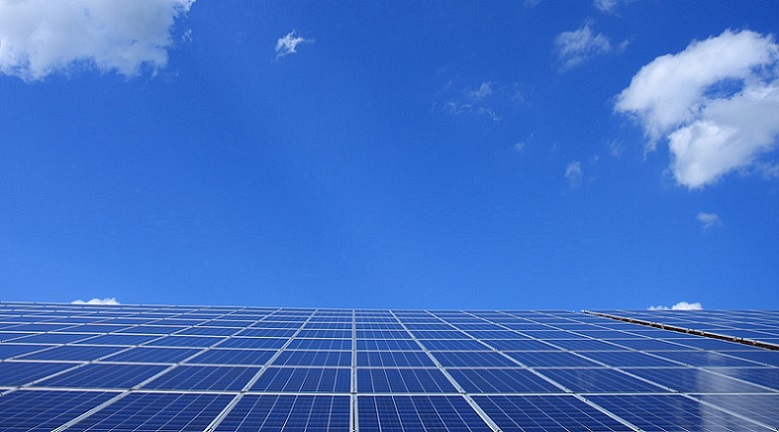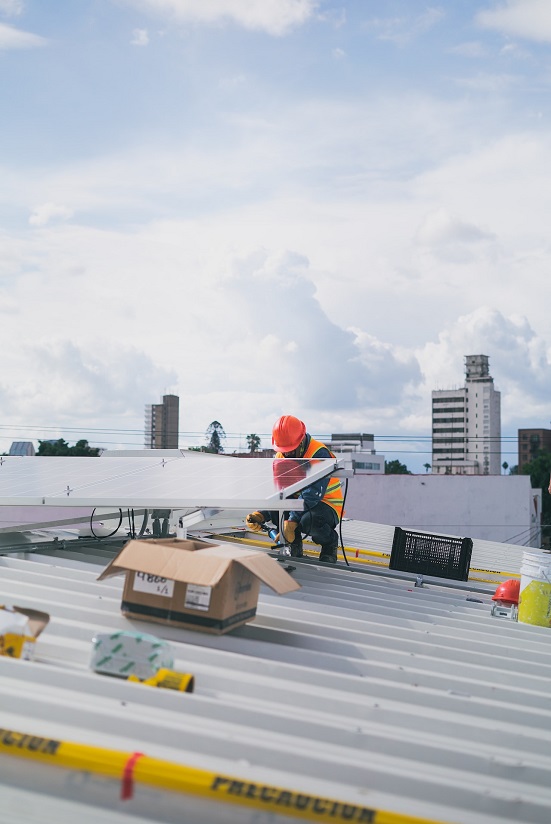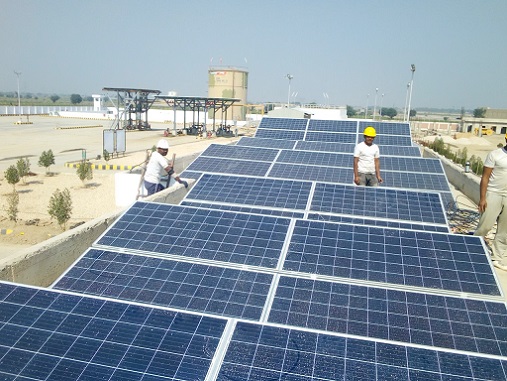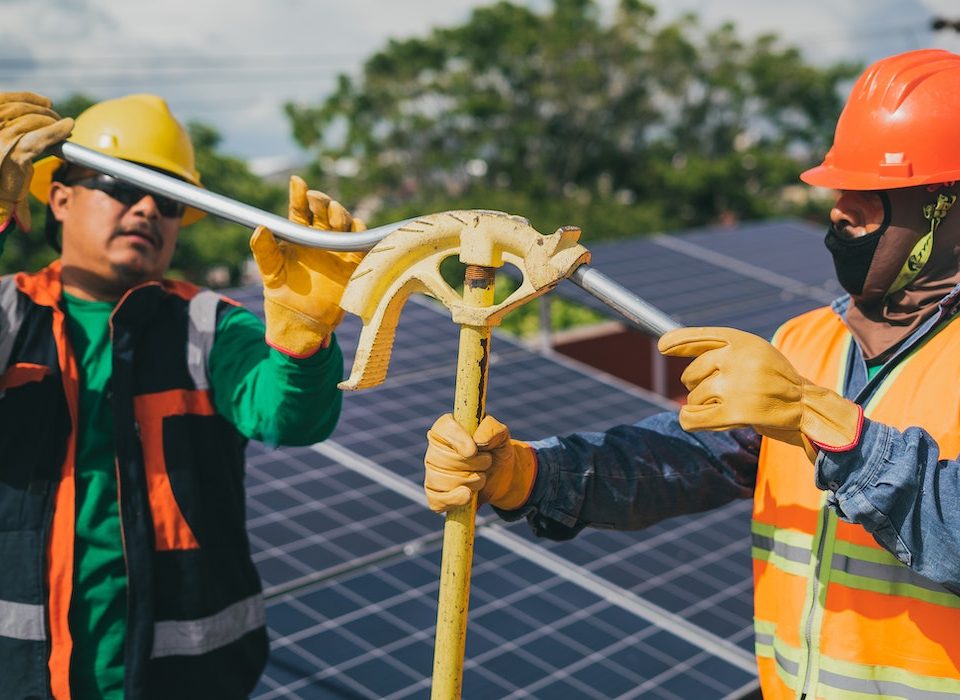As the world moves towards renewable energy sources, solar panels have become an increasingly popular option for households seeking electricity. In British Columbia, the solar energy industry is increasing, with many residents exploring installing solar panels.
However, before investing in a solar panel system, it’s essential to understand the costs and factors involved.

What Factors Impact Solar Costs?
Several factors can impact solar panel costs in BC. These include:
- System size: larger systems will require more panels and cost more to install.
- Roof orientation and shading: a roof facing south and not shaded will be more efficient for solar panels.
- Panel efficiency: higher efficiency panels will cost more but generate more energy.
- Installation costs: the cost of labour and installation materials can vary depending on the complexity of the installation.
- Federal and state incentives: tax credits and other incentives can significantly reduce the cost of installation.
Cost of Installing Different Types of Solar Systems in BC, Canada

Installing a solar system in BC, Canada can be an excellent investment as it reduces your electricity bills and carbon footprint. There are different types of solar systems, each with varying costs and benefits.
Here are the costs of installing different types of solar systems in BC:
Grid-Tied Solar System
A grid-tied solar system is connected to the electricity grid, which means that any excess electricity generated by the solar panels can be sold back to the utility company. A grid-tied solar system in BC can range from $10,000 to $30,000, depending on the size and number of panels required. The average cost of a 5 kW grid-tied solar system in BC is around $16,500.
Off-Grid Solar System
An off-grid solar system is not connected to the electricity grid and requires a battery backup system to store excess electricity generated during the day for use at night. The cost of an off-grid solar system in BC can range from $15,000 to $50,000, depending on the size and number of panels required. The average price of a 5 kW off-grid solar system in BC is around $25,000.
Hybrid Solar System
A hybrid solar system combines a grid-tied and off-grid solar system. It is connected to the electricity grid and has a battery backup system to store excess electricity generated during the day. A hybrid solar system in BC can range from $20,000 to $40,000, depending on the size and number of panels required. The average cost of a 5 kW hybrid solar system in BC is around $30,000.
Building Integrated Photovoltaic (BIPV) System
A BIPV system, such as the roof or walls, is integrated into the building’s design and can provide both electricity and structural support. A BIPV system in BC can range from $20,000 to $40,000, depending on the size and format required. The average cost of a 5 kW BIPV system in BC is around $30,000.
It is important to note that these costs are estimates and can vary depending on the specific requirements of your property and the installation company you choose. Additionally, BC has incentives and rebates for installing solar systems, which can help reduce the overall cost. It is recommended to consult with a solar installation company to determine the best plan for your property and to get a more accurate cost estimate.

Cost of Commercial Solar Panels in BC

The solar panels cost in BC can vary widely depending on the size of the building and the energy needs of the business. Larger commercial solar panel systems typically require more panels and installation work, resulting in higher costs. The type of solar panels used can also affect the overall cost. The price also depends on how much energy is needed.
When it comes to commercial solar panel systems and individual solar panel costs, businesses may be eligible for specific incentives and rebates from the government to offset some of the costs. For example, the federal solar investment tax credit (ITC) offers a tax credit of 26% of the total cost of a solar system for businesses that install solar panels before the end of 2022. In addition, some local governments in BC offer incentives such as property tax exemptions or reduced fees for solar power installations.
Despite the initial solar panel installation costs, many businesses find installing solar panels in BC can be a wise long-term investment. Solar panels can help companies save money on their energy bills, reduce their carbon footprint, and provide a reliable energy source even during power outages. Additionally, businesses may be able to sell excess energy back to the grid, further reducing their energy costs.
Ultimately, the cost of commercial solar panels in BC will depend on various factors, including the size of the building, energy needs, and available incentives. Businesses must research their options and work with a reputable solar company to determine the most cost-effective and efficient solar system for their needs.
How Can I Pay for Solar Panels?

Several ways to pay for solar power installation include cash, solar loans, solar leases or power purchase agreements, and renting.
Cash
Purchasing solar panels outright with cash provides the most immediate return on investment. While the initial cost may be high, homeowners can save on their energy bills immediately.
Solar Loans
Homeowners can also take out loans specifically designed for solar panel installation. These loans can be paid back over time and typically have low-interest rates.
Solar Leases or Power Purchase Agreements
Homeowners can enter into agreements with solar companies to purchase the energy generated by the solar panels at a fixed rate. This can be a good option for those who cannot afford the upfront cost of installation.
Renting
Homeowners can also rent solar panels from a solar company. While this may not be the most cost-effective option in the long run, it can be an excellent way to start using solar energy systems without a significant upfront investment.
BC Solar Power Incentives
Several incentives are available in British Columbia to help homeowners offset the cost of installing solar panels. These incentives can make solar panel installation more affordable and accessible to a broader range of homeowners.
Federal Solar Tax Credit
It is also known as the investment tax credit (ITC), a program that provides homeowners with a tax credit equal to 26% of the total cost of solar panel installation.
This credit can significantly reduce the installation cost, making solar panels more affordable for homeowners. The federal tax credit applies to both residential and commercial solar systems.
Property Assessed Clean Energy (PACE)
The PACE program allows homeowners to finance solar panel installation costs through a property tax assessment. This means homeowners can pay for their solar system over time through their property tax bill. The PACE program offers low-interest financing and flexible repayment terms, making it an accessible option for many homeowners.
Net Metering
The net metering program enables homeowners with solar panel systems to vending any surplus energy produced back to their utility company. This means homeowners can earn credits on their energy bills for the excess energy their solar system generates.
Net metering can help offset the installation cost and provide homeowners with an additional source of income.
Utility Company Incentives
Many utility companies in British Columbia offer incentives for homeowners who install solar panels. These incentives can include rebates, grants, or credits on energy bills. Utility company incentives vary depending on the company, so it is essential to check with your local utility company for specific details.
Tax Breaks
In addition to the federal solar tax credit, homeowners in British Columbia may be eligible for other tax breaks related to solar panel installation. For example, homeowners may be able to deduct the cost of solar panel installation from their income taxes, reducing their overall tax burden.
By taking advantage of these incentives and programs, homeowners can significantly reduce the cost of solar panel installation and make the switch to solar energy systems more affordable.
Not only does solar energy system help homeowners save money on their energy bills, but it also helps to reduce their carbon footprint and contribute to a cleaner and more sustainable future for British Columbia.
Payback and Economics of Installing Solar Panels in BC
Investing in a solar system for your home or business in British Columbia may require a significant upfront cost.
It can ultimately lead to substantial long-term savings on your electricity bills. The economics of solar panels depends on several factors, such as the size of the system, the amount of energy it generates, and the cost of electricity in your area.
When we talk about the payback period of a solar system, it needs a little clarification. This refers to the time it takes for the energy savings from the solar panels to match or exceed the system’s initial cost. In BC, the payback period for a solar panel system typically ranges from 7 to 15 years, depending on the system’s size and efficiency, installation cost, and electricity price.
Another factor to consider is the lifetime cost savings of solar panels. While the upfront cost of solar panels can be significant, the long-term savings can be substantial. A solar panel system can significantly reduce your monthly electricity bills. Additionally, you can generate more energy than you consume, allowing you to sell excess power back to the grid.
In addition to cost savings, installing a solar power system can also increase the value of your home or business, according to a report from the US Department of Energy, homes with solar panels sold for an average of 4.1% more than homes without solar panels.
Overall, the economics of installing a solar power system in BC can vary depending on various factors. However, solar panels can be a sound investment with the right system and installation. They can yield significant savings on your electricity bills while reducing your carbon footprint.
Finding the Right Solar Company in BC
It would help if you considered a few things when looking for a solar company in BC to install your solar power system. Here are some key factors to keep in mind:
Experience: Experience matters when choosing a company to install your solar power system in BC. Looking for a provider with a proven track record of successful installations and satisfied customers is essential.
Reputation: Research the company’s reputation by reading reviews online or asking for references.
Licenses and Certifications: Ensure the solar company you choose has the proper support and certifications to install solar power systems in BC. This will ensure your system is installed correctly and meets all necessary safety standards.
Warranty: Look for a company that offers a warranty on their solar power systems. This will give you peace of mind knowing you’re covered if anything goes wrong with your system.
Determining Solar Power System Value
The value of a solar power system is determined by several factors, including:
Installation costs: The PV power system’s installation will affect its overall value. Factors that impact installation expenses include the system’s size and the installation’s complexity. The cost of labour is also an essential factor to consider.
Energy production: The amount of energy the PV power system produces will also impact its value. A system that makes more energy will have a higher value than one that pays less.
Electricity costs: The cost of electricity in your area will also impact the value of your solar panel system. The higher your electricity costs, the more value your PV power system will provide.
Incentives and tax credits: Incentives and tax credits in your area can also impact the value of your solar power system. In BC, the federal solar tax credit and other incentives can help reduce the cost of installation. They can also increase the value of your system.


Leave a Reply